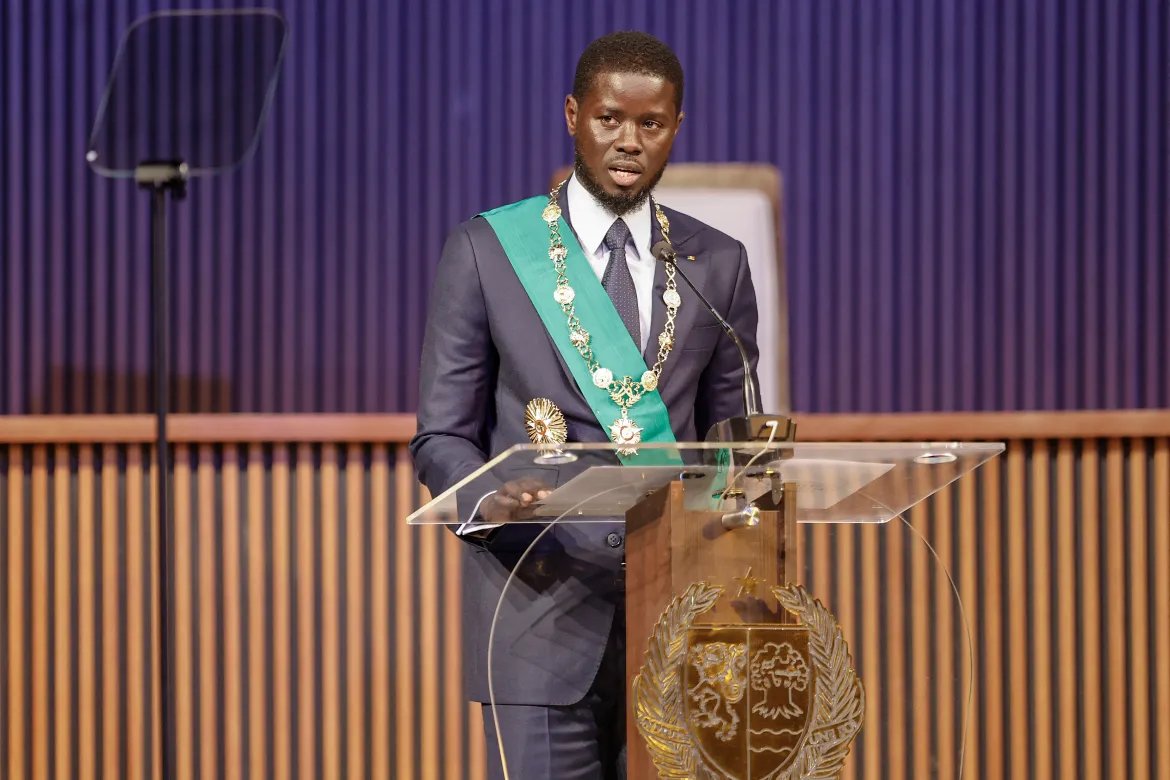
Senegal’s new president, Bassirou Diomaye Faye, took the oath of office in Tuesday’s ceremony. Close behind him sat the popular opposition leader who had clinched the win.
Still reeling from a whirlwind campaign, young people in Senegal threw jackets over their worn election T-shirts on Tuesday to attend the inauguration of an opposition politician who went from political prisoner to president in less than three weeks.
Their new leader, Faye at 44, Africa’s youngest elected president — took the oath of office promising “systemic change,” and paying homage to the many people killed, injured, and imprisoned in the yearslong lead-up to the West African country’s election.
“I will always keep in mind the heavy sacrifices made so as to never disappoint you,” Mr. Faye said, addressing a vast auditorium in which African heads of state and dignitaries sat at the front. From the back, hundreds of supporters of Mr. Faye and his powerful backer, the opposition leader Ousmane Sonko, shouted for joy.
It was the culmination of months of drama, after the former president, Macky Sall, canceled the election with just weeks to go, citing irregularities at the constitutional council — and then, under intense domestic and international pressure, agreed to hold it after all.
The left-wing pan-Africanist was sworn in on Tuesday after sweeping to a first-round victory in the March 24 elections on a pledge of reform. At age 44, he is Senegal’s youngest president.
“Before God and the Senegalese nation, I swear to faithfully fulfil the office of president of the Republic of Senegal,” Faye said in Diamniadio, near the capital, Dakar.
He also promised to “scrupulously observe the provisions of the constitution and the laws” and defend “the integrity of the territory and national independence and to spare no effort to achieve African unity”.
The formal handover of power with outgoing President Macky Sall will take place at the presidential palace in Dakar.
Faye was released from prison less than two weeks before the vote along with popular opposition figure and mentor Ousmane Sonko after a political amnesty announced by Sall.
“It’s the culmination of a long struggle for democracy and the rule of law,” said Aissata Sagna, 39, a factory worker who worked on Faye’s campaign. “This is a day of celebration for us, even if we have lost young people killed during the demonstrations.”
The election tested Senegal’s reputation as a stable democracy in West Africa, a region that has experienced coups and attempted coups. It followed months of unrest ignited by the arrests last year of Sonko and Faye and concerns that the president would seek a third term in office despite constitutional term limits. Rights groups said dozens of people were killed in the protests and about 1,000 were jailed.
Faye campaigned on promises to clean up corruption and better manage Senegal’s natural resources. His victory was seen as reflecting the will of young people frustrated with widespread unemployment and former colonial ruler France, seen by critics to be using its relationship with Senegal to enrich itself.
In his first speech as president-elect, Faye – commonly known as Diomaye, or “the honourable one” in the local Serer language – promised to fight corruption and reform the economy.
